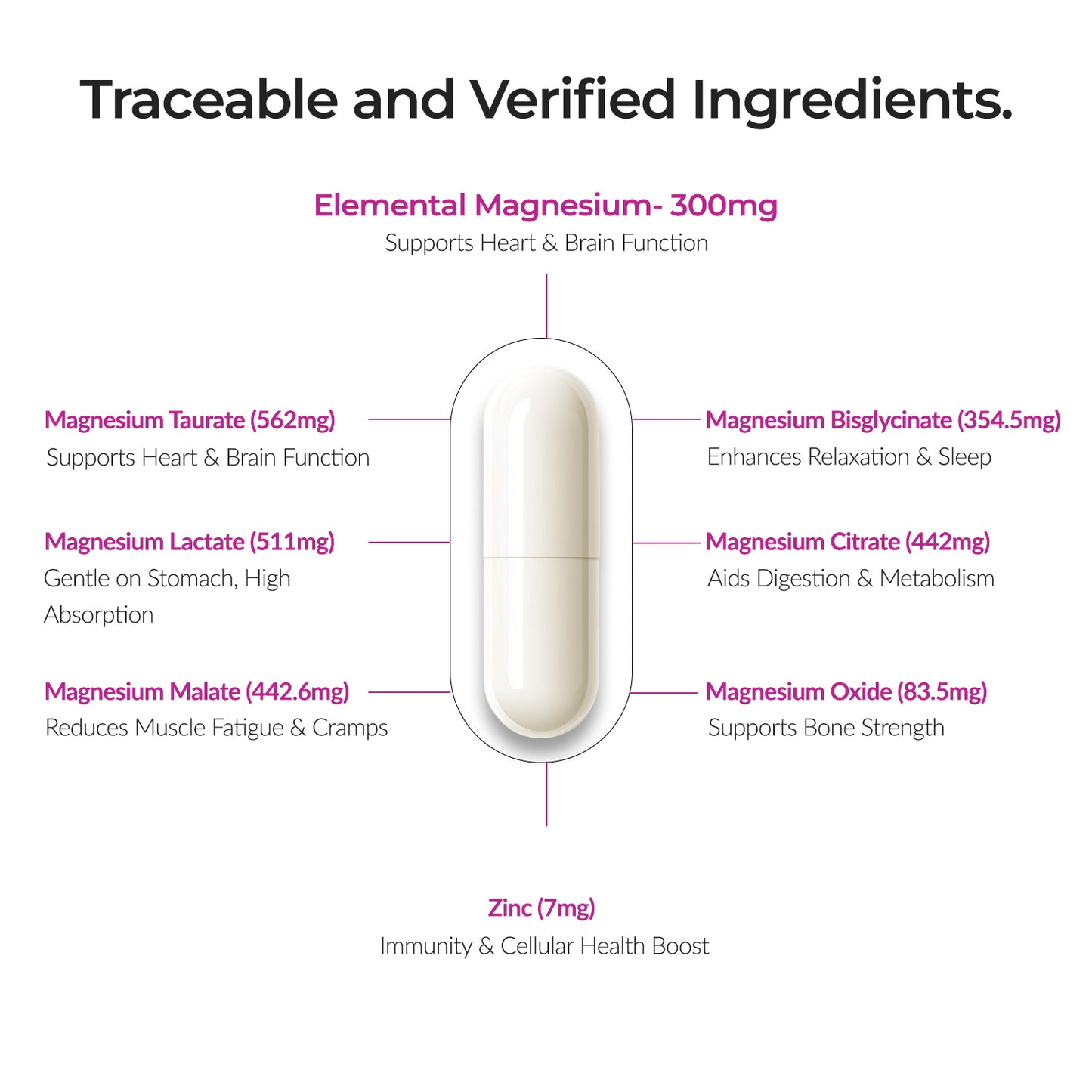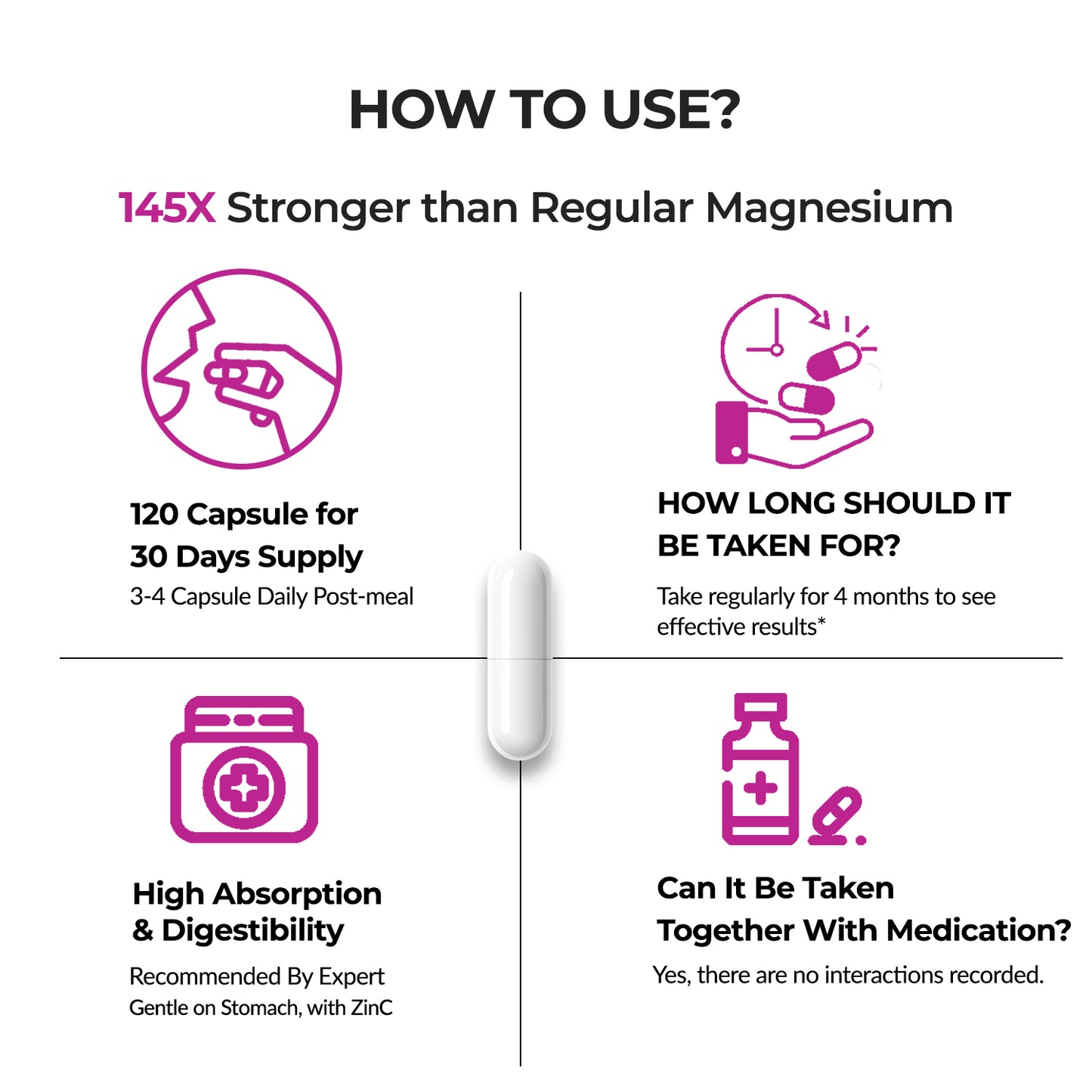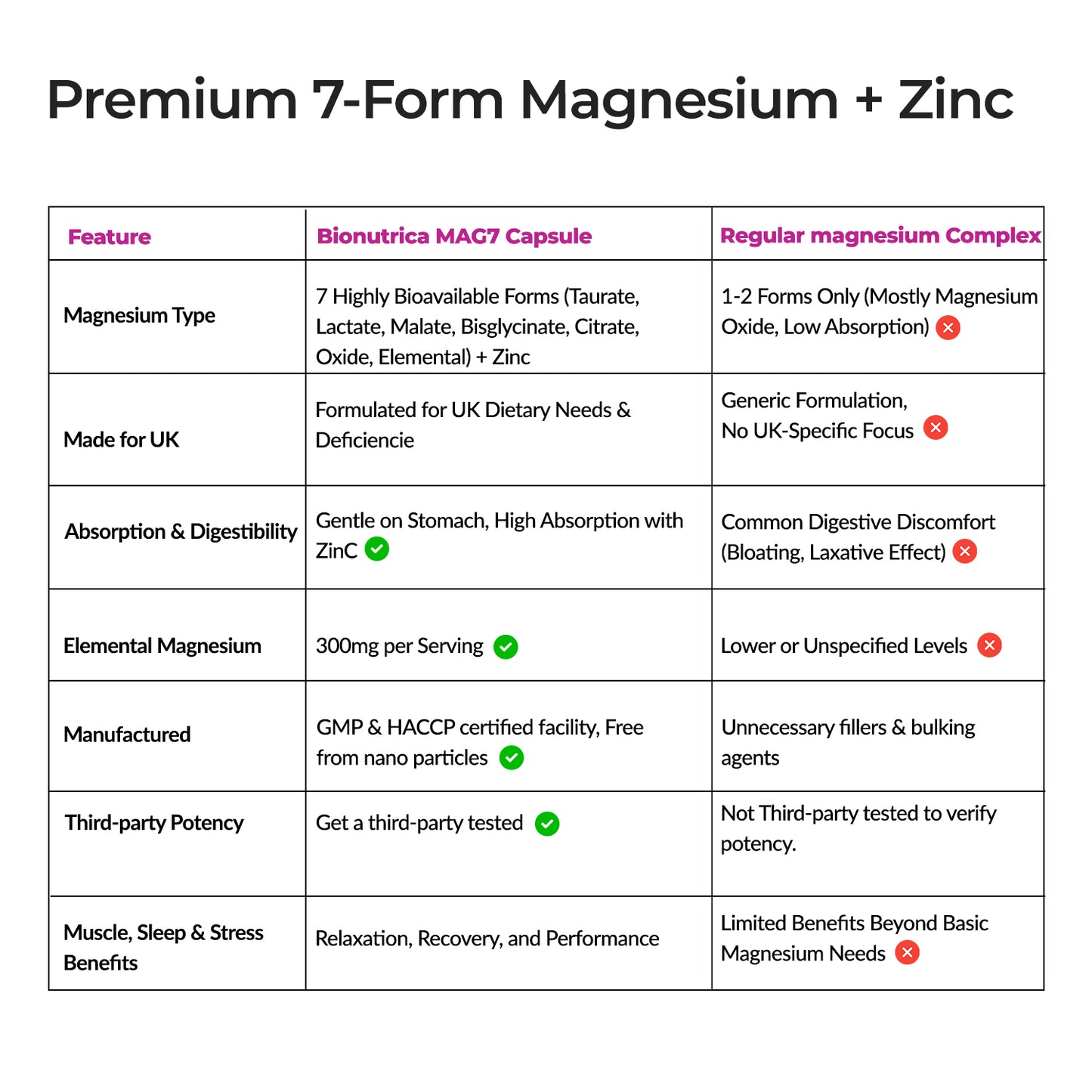Hypomagnesemia: Causes and Symptoms Explained by Bionutrica
Magnesium plays a vital role in hundreds of biochemical reactions in the human body. Yet, millions of people unknowingly suffer from hypomagnesemia a condition marked by abnormally low levels of magnesium in the blood. At Bionutrica, we believe awareness is the first step to better health. Let’s explore what causes hypomagnesemia, how to recognize its symptoms, and what you can do to restore balance naturally.

What Is Magnesium and Why It Matters
Magnesium is an essential mineral involved in over 300 enzymatic processes. It supports:
- Muscle and nerve function
- Heart rhythm regulation
- Blood pressure control
- Bone strength
- Energy production and mood balance
When your body lacks sufficient magnesium, these systems can start to falter sometimes without obvious warning signs at first.
What Causes Hypomagnesemia?
Several factors can contribute to magnesium deficiency. Common causes include:
- Poor diet: Low intake of magnesium-rich foods like leafy greens, nuts, and legumes.
- Certain medications: Diuretics, proton pump inhibitors, and antibiotics may lower magnesium absorption or increase loss.
- Digestive disorders: Conditions like Crohn’s disease or celiac disease can impair nutrient absorption.
- Chronic alcoholism: Leads to increased urinary magnesium loss.
- Kidney disorders: Impaired renal function can disrupt magnesium retention.
Common Symptoms of Low Magnesium
Magnesium deficiency often goes unnoticed until symptoms become more pronounced. Watch for:
- Fatigue and muscle weakness
- Muscle cramps, twitches, or spasms
- Loss of appetite or nausea
- Abnormal heart rhythms
- Feelings of anxiety, mood swings, or brain fog
- Numbness or tingling, especially in the extremities
Who’s at Risk for Hypomagnesemia?
While anyone can develop a magnesium deficiency, these groups are more vulnerable:
- Elderly adults
- People with Type 2 diabetes
- Individuals with digestive or GI conditions
- Those who consume excessive alcohol
- People taking certain long-term medications
How Is Hypomagnesemia Diagnosed?
A simple blood test can detect magnesium deficiency, though many doctors also consider symptoms and lifestyle factors. Normal serum magnesium levels fall between 1.7 to 2.2 mg/dL. If you’re experiencing unexplained fatigue, cramps, or heart rhythm issues, testing your magnesium may be a smart first step.
Managing Magnesium Deficiency Naturally
The good news? Hypomagnesemia can often be managed or reversed with simple lifestyle changes:
1. Eat Magnesium-Rich Foods
- Spinach, kale, and Swiss chard
- Almonds, cashews, pumpkin seeds
- Black beans, lentils, and tofu
- Bananas and avocados
- Dark chocolate (at least 70% cocoa)
2. Consider a High-Quality Supplement
Food alone may not be enough—especially for those at high risk. A supplement like MAG7 by Bionutrica provides a convenient and bioavailable way to restore optimal levels.
Why Choose Bionutrica’s Magnesium Formula (MAG-7)?
Our MAG-7 supplement is formulated to support daily magnesium needs with multiple advanced forms of magnesium including citrate, glycinate, and malate. Here's why it's trusted across the UK:
- High Bioavailability: Designed for easy absorption without GI distress
- Clean Ingredients: No fillers, artificial colors, or preservatives
- Traceable Sourcing: UK/EU compliant manufacturing standards
- Supports Stress, Sleep & Muscle Health: A comprehensive blend for modern lifestyles
Hypomagnesemia may sound complex, but it’s surprisingly common — and often manageable with the right awareness and support. If you’re experiencing symptoms or fall into a higher-risk group, it’s worth considering a magnesium check-up.
Supporting your body with a trusted formula like Bionutrica’s MAG-7 can help restore balance naturally and safely.
Explore Bionutrica’s designed to help you live stronger, longer, and healthier every day.









